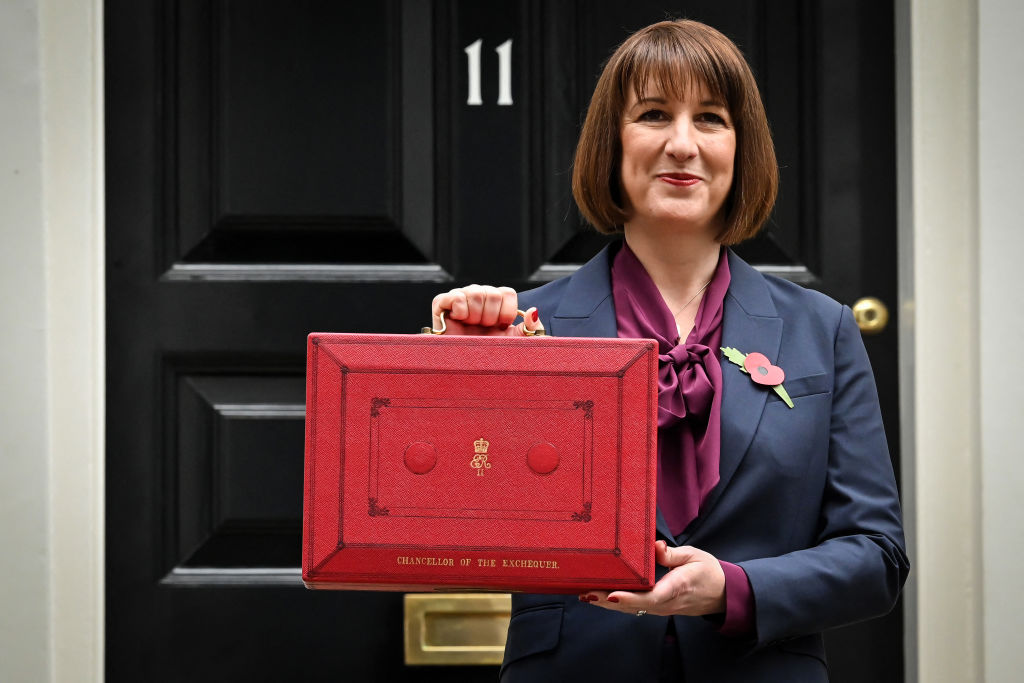Spring Budget: What the latest National Insurance cut means for you
Chancellor Jeremy Hunt announced a 2p cut in National Insurance in his latest fiscal update – how much could you actually save?


Get the latest financial news, insights and expert analysis from our award-winning MoneyWeek team, to help you understand what really matters when it comes to your finances.
You are now subscribed
Your newsletter sign-up was successful
Want to add more newsletters?

Twice daily
MoneyWeek
Get the latest financial news, insights and expert analysis from our award-winning MoneyWeek team, to help you understand what really matters when it comes to your finances.

Four times a week
Look After My Bills
Sign up to our free money-saving newsletter, filled with the latest news and expert advice to help you find the best tips and deals for managing your bills. Start saving today!
Workers are set for a further national insurance tax cut in April following today’s Spring Budget.
Hunt had already used last year’s Autumn Statement to unveil a 2 percentage points drop in Class 1 employee national insurance (NI) rates from 12% to 10% that started from 6 January 2024.
He used his latest fiscal update to announce another 2p cut that will take employee NI from 10% to 8% from the new tax year in April.
MoneyWeek
Subscribe to MoneyWeek today and get your first six magazine issues absolutely FREE

Sign up to Money Morning
Don't miss the latest investment and personal finances news, market analysis, plus money-saving tips with our free twice-daily newsletter
Don't miss the latest investment and personal finances news, market analysis, plus money-saving tips with our free twice-daily newsletter
The Treasury said an average worker earning £35,400 a year will be more than £900 better off this year as a result of the changes.
The chancellor also said he will reduce class 4 NI contributions – paid by the self-employed - from the 8% it was lowered to in the Autumn Statement to 6%.
This could mean the average worker earning £28,000 will be £650 better off compared with last year, the Treasury said.
What is national insurance?
NI is the second largest source of income for the government.
National Insurance Contributions (NICs) are paid by both employees and employers.
Class 1 NI is charged on employee annual earnings between £12,571 and £50,270.
A fixed percentage is deducted from a person’s pay packet, and how much you pay dictates your eligibility for state benefits such as the state pension.
Will the NI cut help workers?
Ultimately, the more you earn, the more you pay in NI and the more you will save from these changes.
The median salary in the UK is currently around £28,000 so 2p off Class 1 NICs will add £309 a year to that salary, according to analysis by Evelyn Partners.
Someone earning £40,000 a year would gain £549 and higher rate or additional rate taxpayers on a salary greater than £50,270 would see their annual disposable income rise by £754.
Taken together with the January cut, this move on NI amounts to a total tax cut – compared to the situation in 2023 - of an annual £618 for a median earner and £1,508 for higher earners, or £51.50 a month and £125.60 respectively, says Toby Tallon, tax partner at Evelyn Partners.
But he warns that taxpayers are still hit by frozen tax thresholds that cause fiscal drag.
“(The NI change) would be a reasonably significant tax cut in isolation, but it is swimming against a rising tide of taxation due to frozen or falling allowances and thresholds, not just for income tax but also capital gains, dividend and inheritance taxes,” he says.
“The drop in NICs will provide temporary respite against that rising tax burden, but will just push down the road by a year or two the point at which the overall tax situation for most people starts to feel more onerous again.
| Salary | 2023 | Jan-April 2024 | April 2024 onward | Change from 2023 to April 2024 |
|---|---|---|---|---|
| £15,000 | £291.6 | £243 | £194.4 | £97.2 |
| £25,000 | £1,491.6 | £1,243 | £994.4 | £497.2 |
| £35,000 | £2,691.6 | £2,243 | £1,794.4 | £897.2 |
| £50,000 | £4,491.6 | £3,743 | £2,994.4 | £1,497.2 |
| £75,000 | £5,018.6 | £4,264.6 | £3,510.6 | £1,508 |
| £85,000 | £5,218.6 | £4,464.6 | £3,710.6 | £1,508 |
| £100,000 | £5,518.6 | £4,764.6 | £4,010.6 | £1,508 |
Source: AJ Bell. Figures show annual National Insurance bill.
AJ Bell also highlights that higher earners may feel short-changed as their NI savings are around the same as someone earning half.
The investment platform highlights that someone earning £100,000 will save £754 on their tax bill, only a bit more than someone on £50,000 who would save £749.
“While some may struggle to muster up much sympathy for those earning six-figures, this move has a huge impact on single earner households,” says Laura Suter, director of personal finance at AJ Bell.
“A couple each earning £50,000 a year will see their combined national insurance bill cut by almost £1,500 a year but a sole earner on £100,000 will only save £754 a year.”
Sarah Coles, head of personal finance at Hargreaves Lansdown, adds that this cut doesn’t benefit those of state pension age who may have stopped working and no longer pay NI.
Meanwhile, Susan Waites, partner at Hymans Robertson, warns that the cut risks dis-incentivising pension saving as it erodes the savings an employee makes by sacrificing pay for pension contributions versus the savings their employer makes.
“Although the increase in take home pay would outweigh the increase in the cost of pension contributions, this is still cuts across Government intentions and industry efforts to incentivise employees to pay much more into their workplace pensions, she says.
“Some employers choose to pay some or all of their NIC saving into the employee’s pension. We would encourage those that don’t to consider doing that.”
Get the latest financial news, insights and expert analysis from our award-winning MoneyWeek team, to help you understand what really matters when it comes to your finances.

Marc Shoffman is an award-winning freelance journalist specialising in business, personal finance and property. His work has appeared in print and online publications ranging from FT Business to The Times, Mail on Sunday and the i newspaper. He also co-presents the In For A Penny financial planning podcast.
-
 Should you buy an active ETF?
Should you buy an active ETF?ETFs are often mischaracterised as passive products, but they can be a convenient way to add active management to your portfolio
-
 Power up your pension before 5 April – easy ways to save before the tax year end
Power up your pension before 5 April – easy ways to save before the tax year endWith the end of the tax year looming, pension savers currently have a window to review and maximise what’s going into their retirement funds – we look at how
-
 What has changed with employers’ National Insurance – and how will it impact you?
What has changed with employers’ National Insurance – and how will it impact you?Will you feel the effects of the National Insurance hike, as businesses warn of redundancies, smaller pay rises and higher inflation?
-
 Conservatives pledge to cut National Insurance again – how much could you save?
Conservatives pledge to cut National Insurance again – how much could you save?News A 2p reduction in National Insurance is a key feature of the Tory’s general election manifesto.
-
 Workers set for new national insurance tax cut – how much will you save?
Workers set for new national insurance tax cut – how much will you save?News National insurance tax rates have fallen but frozen allowances may limit the benefits.
-
 Budget 2024: National Insurance cut, a new British ISA, and reform of the child benefit charge - here’s what has been announced
Budget 2024: National Insurance cut, a new British ISA, and reform of the child benefit charge - here’s what has been announcedThe chancellor has announced a host of changes, including cutting National Insurance again, and abolishing some tax reliefs. Here’s how the Budget will affect your finances.
-
 Brace for a year of tax rises
Brace for a year of tax risesThe government is strapped for cash, so prepare for tax rises. But it’s unlikely to be able to squeeze much more out of us.
-
 Cut taxes? No, reform them instead
Cut taxes? No, reform them insteadOpinion The way the state raises money is far too complicated, says Merryn Somerset Webb. Time for a radical revamp.
-
 The High Income Child Benefit Charge - is it the most illogical, unfair and unnecessary tax?
The High Income Child Benefit Charge - is it the most illogical, unfair and unnecessary tax?Analysis We may not like taxes, but this one is blatantly unfair, penalises middle income earners and adds to the gender pensions gap, says Kalpana Fitzpatrick.
-
 Hunt ditches changes to IR35 tax rule
Hunt ditches changes to IR35 tax ruleAdvice The new chancellor has scrapped plans to reform the IR35 tax rule for contractors and freelancers.